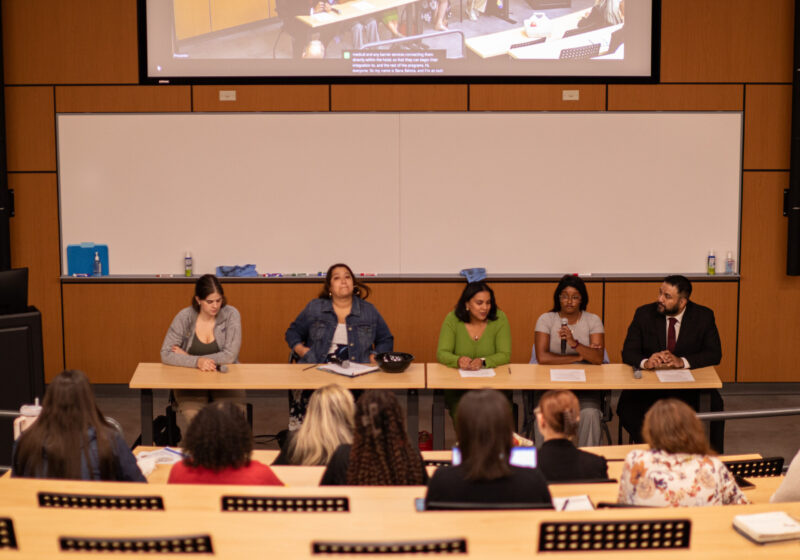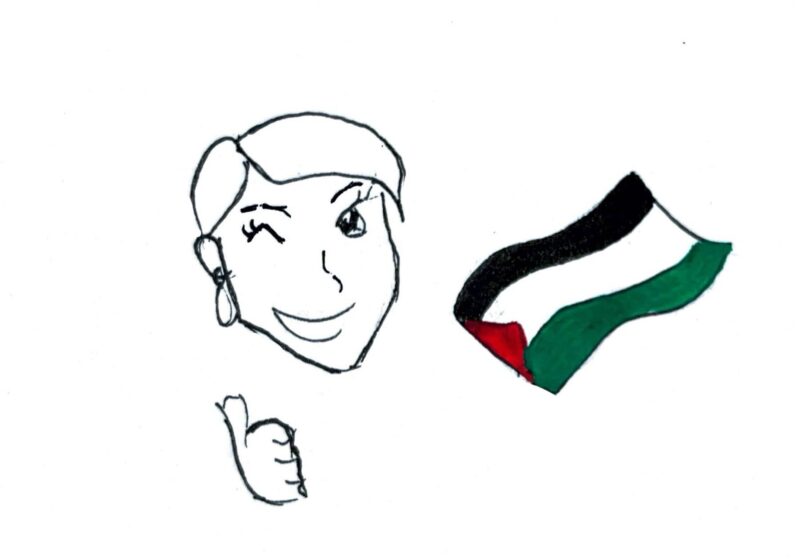According to the Catholic Courier, Rochester has welcomed hundreds of immigrants and asylum seekers coming from New York City who seek opportunities and some form of a better life. The increasing number of immigrants and asylum seekers are part of a larger national trend that began in April 2022, when immigrants and asylum seekers from the U.S.-Mexico border were transported to major cities across the nation. Many of these immigrants and asylum seekers in Rochester originate from Latin American countries, such as Venezuela and Ecuador, and join a rapidly growing Latino population in the U.S.
As part of National Hispanic Heritage Month, Dr. Paula Cupertino and Dr. Telva Olivares from URMC organized a panel on Sept. 26 for students and the public to “[build] URMC’s capacity to serve the growing Latino immigrant community in Rochester” by “[learning] from key leading organizations serving Latino immigrant and farmworker communities in the region.”
Cupertino kicked off the panel by outlining the current and future state of the health of Latino individuals across America. One statistic emphasized was that the U.S. Latino population has been predicted to have a 142% increase in cancer cases in the next 15 years because of a growing population, in part fueled by immigrants and asylum seekers.
Ariana Montalvo, who previously worked with the Western NY Coalition Farmworkers Serving Agency (WNYCFSA), reflected on the importance of statistics like these.
“Being someone who is Latinx, [this] is something super important to be aware of, not only for my own community, but the community I work alongside of,” Montalvo said.
The panelists then shared their roles in their organizations and their experiences in aiding Latino immigrants and asylum seekers in Rochester.
Attorney Ramon Irizarry of the WNYCFSA explained, “Corroboration is really important […] To be eligible for asylum here in the United States, you have to prove persecution, either past or present.”
In order to achieve asylum, asylum seekers have to prove persecution in their country of origin and that their persecution is on the basis of factors such as race, ethnicity, or politics, Irizarry said. Forensic and psychological evaluations are therefore conducted to investigate any trauma asylum seekers sustained in their home country in relation to their persecution.
Hannah Garth, student liaison for Rochester Humans Rights Initiative (RHRI), explained that “[they] connect asylum seekers with physicians who are trained in forensic evaluations.”
RHRI also provides medical affidavits that attorneys like Irizarry use in court to corroborate an asylum seeker’s claims of persecution from their home country.
In addition to aiding in legal and healthcare processes, Ibero and the WNYCFSA host educational training programs that assist immigrants and asylum seekers in achieving self-sufficiency. Bania Bautista, the representative for the latter agency, highlighted the story of a father who originally reached out in 2022 about his special needs son’s education, but also ended up receiving a general “Know Your Rights” education. After this education and some discussion, the agency then realized that he was being labor trafficked.
“The majority of people being labor trafficked do not realize they are victims,” Bautista said. “And so, through a lot of patience and conversations and reassurance, we were able to build that trust as well, where he then said ‘yes, I am ready to speak to a lawyer.’”
With the help of the agency, the father and mother were able to receive work permits, which allowed them to become permanent NY residents this year.
“A lot of [the agency’s] work focuses on that — building that relationship and making sure that we can address all those underlying issues,” Bautista summarized.
While these organizations and panelists have made a lot of progress, they have still encountered many challenges and roadblocks during their practices. Panelists highlighted language barriers between providers and patients, lack of accessibility to health insurance, lack of physician availability, cultural stigma around care, and lack of trust in the system.
“It [takes] more than two or three visits for [farmworkers] to trust me enough to let me know if there’s a concern if they have,” Bautista explained.
Daisy Ruiz, representative of Ibero, also highlighted a lack of cultural competency within the medical field: “Unfortunately, we do not, a lot of the time, take time to slow down and think — okay, so if this is this person’s behavior, why is it and how can I approach this person and how can we come up with a plan to improve their health?”
Then, on the legal side of immigration matters, Attorney Irizarry broke down exactly how drawn out legal processes can be.
“On average, it’s anywhere between one to two years. Possibly three in Western New York,” he explained, referring to how long it takes for an asylum seeker to be granted asylum and obtain a work permit.
Ruiz continued on and explained how the work permit processing length is a challenge in and of itself: “If they’re working under the table, then they’re more susceptible to having issues in their work […] I’ve heard of individuals getting into accidents and going into labor trafficking.”
Ruiz and Garth lastly explained that their respective organizations would benefit from more consistent support.
Senior Daniela Matute reflected on the panel and the overall immigration experience. “You can come here for work, you can come here for being persecuted. But ultimately, the whole process is traumatizing,” she said. “I think these organizations are helping these communities more and more, but they still need a lot of help in terms of resources […] and partnerships to help on a broader extent.”




